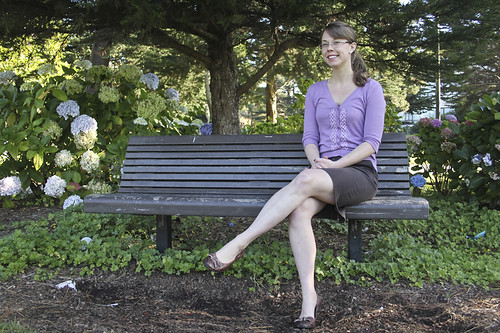
Fliers asking young women to donate their eggs with the incentive to get compensated with up to $8,000 are a common sight around campus.
Last November, Emily Watson, a 22-year-old SF State English graduate student, decided to donate her eggs for “purely financial reasons.”
Watson saw a Facebook advertisement asking interested parties to consider donating their eggs at a University of California, San Francisco clinic.
The process of being accepted as a viable egg donor candidate is lengthy. According to Watson, she filled out about 25 pages of health, personality and family history questions before going through five to six months of testing and waiting until a couple selected her. She then went through 10 days of hormone treatments.
Initially at ease with her decision, “I didn’t do any research on it,” Watson said. “They said it was safe, safe enough to do it up to five times without a possible cancer risk, and so I just decided to trust them and to not really look into the hormones (treatment).”
According to the Stanford Egg Donor Information Project, the first stage of the regimen requires a group of drugs to create an artificial menopause in donors so the timing of egg maturation and ovulation can be controlled.
According to Fertility Nation, an infertility health blog, the medications are known to cause mood swings, headaches, abdominal bloating, weight gain, nausea and stinging pain at the injection site for some women.
Tina Stevens is a history professor at SF State and a member of the board of directors for the Alliance for Human Biotechnology (AHB), a non-profit organization that aims to raise public awareness about the social implications of genetic engineering and other biotechnological and reproductive technologies.
Recently Stevens, along with Diane Beeson, department of sociology and social services Cal State East Bay presented a lecture at SF State on how biotechnological development affects people with a focus on egg donors.
“Everybody should be very well-informed before taking on any possible risks,” Stevens said. “Risks such as cancer may take up to 20 to 30 years to manifest.”
AHB aims to make the process of donating eggs more transparent and to have more oversight. “What’s being studied right now is the most severe things, not the subtle things,” Beeson said. “Mood swings, depression and ovarian cysts can occur.”
The Stanford project estimates that one in 500 to 1,000 surgeries include major injury to the bladder, bowel, uterus, blood vessels or other pelvic structures.
In their study of 674 women who underwent egg retrieval, 1.5 percent required hospitalization due to complications during or after surgery.
Watson was on hormone treatment for 10 days and felt her ovaries grow from walnut sized to the size of grapefruits, which meant that she was ready to have surgery.



